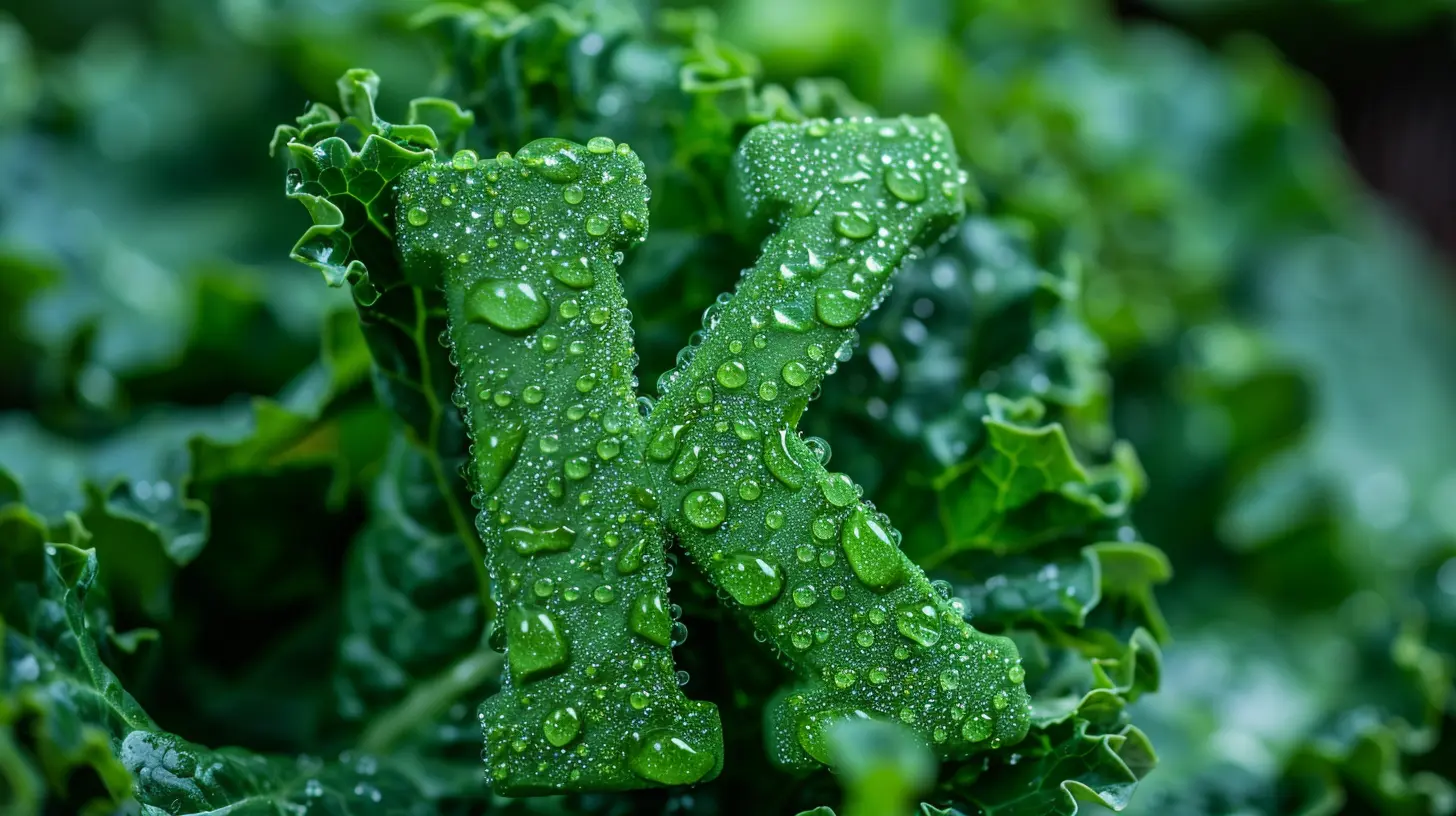Why Vitamin K Is Important for Supporting a Healthy Cardiovascular System
15 August 2025
When it comes to heart health, most folks automatically think of the usual suspects—omega-3s, exercise, maybe cutting back on fried foods. But there's a quiet player, often overlooked, quietly working behind the scenes to keep your ticker in top shape. Say hello to Vitamin K.
It doesn’t have the flash of Vitamin C or the fame of Vitamin D, but make no mistake—Vitamin K is a powerhouse. And the deeper you dig, the more fascinating it gets. So let’s crack open this mystery and find out just how important Vitamin K is for your cardiovascular system.
What Exactly Is Vitamin K?
Alright, let’s start with the basics.Vitamin K is a fat-soluble vitamin, meaning it needs fats to be absorbed and stored in your body. There are actually two main types:
- Vitamin K1 (phylloquinone) – Found in leafy greens like kale, spinach, and broccoli.
- Vitamin K2 (menaquinone) – Found in fermented foods, some animal products, and even produced by gut bacteria.
While both are crucial, K2 is the real MVP when it comes to heart health. Why? It’s all about where it goes and what it does.
The Hidden Role of Vitamin K in Your Body
Now, this isn’t your average vitamin. Vitamin K plays a unique and essential role in blood clotting. That’s its most famous job. But recent research shines a light on another side of Vitamin K—its role in preventing calcium from building up in the wrong places.Think of Vitamin K like a traffic cop for calcium. It guides calcium to where it belongs—your bones and teeth—and away from where it shouldn’t be—like your arteries and soft tissues. Without this guidance? Calcium starts freelancing in all the wrong places, hardening arteries and setting off alarm bells for heart disease.
Sounds pretty important all of a sudden, doesn’t it?
How Does Vitamin K Support Cardiovascular Health?
You might be asking, “Okay, but how does it actually work?” Excellent question.1. Prevents Arterial Calcification
This is the granddaddy of Vitamin K benefits.Your body produces a special protein called Matrix Gla Protein (MGP)—it's like the bouncer at a swanky nightclub, keeping calcium out of your arteries. But here’s the catch: MGP needs Vitamin K to be activated. Without it, MGP is useless, and calcium gets in.
Over time, this leads to arterial calcification—hardening of the arteries—which makes your heart work harder and increases your risk of heart disease, strokes, and even high blood pressure.
2. Keeps Your Blood Flowing Smoothly
Vitamin K’s initial claim to fame was all about blood clotting. It helps your body form clots when you actually need them, like after a cut. But it also keeps clots from forming when they shouldn’t.An imbalance could lead to clots forming in your veins or arteries—not something you want, especially with your heart in the line of fire.
3. Supports Elastic and Flexible Arteries
You know how a garden hose cracks and becomes brittle in the sun? Arteries can do that too—if they lack the proper support. Vitamin K helps maintain the elasticity of your blood vessels, ensuring they stay flexible and resilient under pressure.4. May Reduce the Risk of Heart Disease
Multiple studies have found that people with higher intakes of Vitamin K2 tend to have lower rates of heart disease. Especially in older adults, K2 appears to reduce arterial stiffness and improve overall cardiovascular flexibility.Researchers have called it “a promising therapeutic nutrient”—and I’d say that’s putting it mildly.
The Shocking Link Between Low Vitamin K and Heart Problems
Here’s where things get a little more serious.Low Vitamin K levels have been directly associated with:
- Increased arterial calcification
- Higher blood pressure
- Greater risk of coronary heart disease
- Reduced lifespan in heart disease patients
That’s no coincidence. Without enough K2, your body simply can't manage calcium properly. It’s like trying to run a factory without a foreman—things get out of control fast.
What’s crazier? A lot of us are unknowingly low in Vitamin K2. It’s not as common in modern diets, especially the fermented stuff. And most multivitamins? They often give you K1, but not nearly enough K2.
Where Can You Get Vitamin K from Food?
Nature’s got your back—if you know where to look.Best Sources of Vitamin K1:
- Kale- Spinach
- Swiss chard
- Broccoli
- Green peas
These are all leafy and green, perfect for salads or smoothies.
Best Sources of Vitamin K2:
- Natto (fermented soybeans—an acquired taste but a K2 superfood)- Hard cheeses
- Egg yolks
- Chicken liver
- Fermented dairy (like kefir or yogurt)
If your diet is low in fermented foods or animal fats, you might not be getting enough K2—simple as that.
Should You Consider a Vitamin K Supplement?
Let’s be honest—most of us aren’t eating natto on the regular, right?If you’re concerned about your cardiovascular health, or already have risk factors like high cholesterol or family history, a Vitamin K2 supplement can be a smart move.
Look for MK-7, a specific type of K2 that stays in your system longer and has the strongest evidence backing its benefits for heart health.
But always—always—talk to your doctor first, especially if you’re on blood thinners like warfarin. Vitamin K impacts blood clotting, so you don’t want to mess around without medical advice.
What About Vitamin K and Vitamin D?
This pairing is like Batman and Robin for your arteries.Here’s the deal: Vitamin D helps you absorb calcium. That’s great for your bones, but not so great if the calcium heads into your arteries.
Vitamin K2 teams up with Vitamin D to direct that calcium right into your bones, where it belongs. They balance each other out perfectly. So, if you’re taking Vitamin D (which many people do), you might really need K2 to keep things in check.
FAQs About Vitamin K and Heart Health
Q: Can I get too much Vitamin K?A: From food? Not likely. Your body regulates it well. But with supplements, especially if you're on medications, keep an eye out. Always follow dosage guidelines and consult your doc.
Q: How much Vitamin K do I need daily?
A: For adults, the general recommendation is 90-120 mcg for K1, but there’s no official guideline for K2—yet. Studies show benefits at 100-200 mcg per day for heart health.
Q: Is Vitamin K only important for older people?
A: Nope! Arterial calcification starts young—sometimes as early as your 20s. The earlier you support your body with key nutrients, the better.
Q: Can a deficiency cause symptoms?
A: Severe deficiency is rare but can lead to excessive bleeding. Subtle deficiency may silently contribute to artery stiffness and heart disease over time.
Your Heart Deserves Some K-love
We live in an age where heart disease is the #1 killer—yet so many solutions are hiding in plain sight. Vitamin K, especially K2, is one of them.It’s humble. It’s quiet. But don’t be fooled.
Vitamin K is a mighty warrior in the battle for your heart’s health. Whether you eat it, supplement it, or a bit of both, one thing’s clear: your arteries will thank you.
And hey, now when someone mentions vitamins, you can smile knowingly and say, “Have you heard about K2?
all images in this post were generated using AI tools
Category:
VitaminsAuthor:

Eileen Wood
Discussion
rate this article
1 comments
Zinn McFee
Great article! Emphasizing the role of Vitamin K in cardiovascular health is crucial. It’s often overlooked in discussions about heart wellness.
September 6, 2025 at 3:44 PM

Eileen Wood
Thank you! I appreciate your feedback and totally agree—Vitamin K deserves more attention in heart health discussions!


